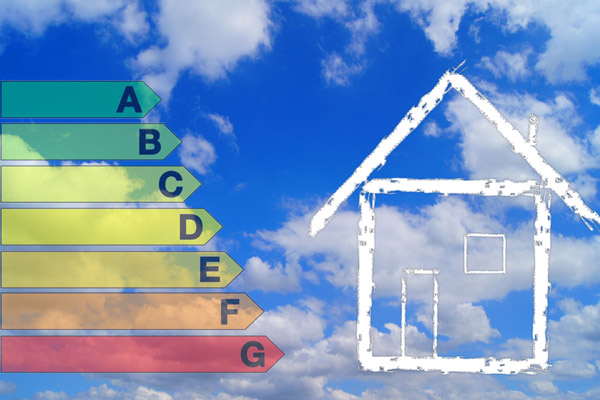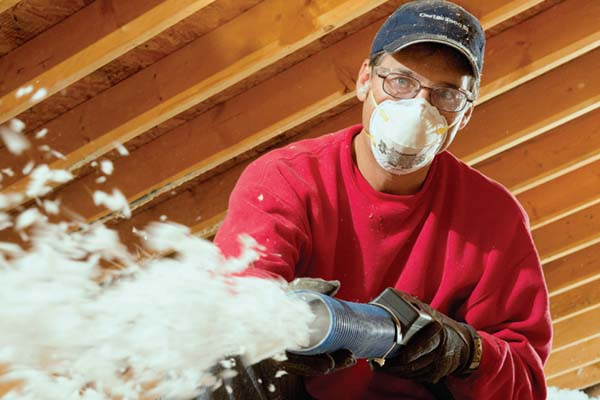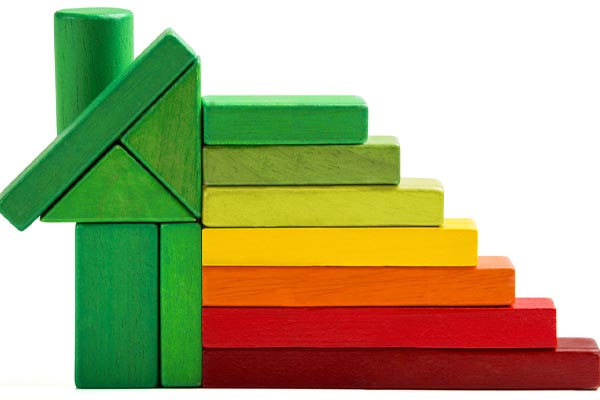New Windows or New Insulation: What is Best for Energy Efficiency?

In the pursuit of creating energy-efficient homes, the question of whether to invest in new windows or new energy saving insulation often comes up. Both components enhance a home’s energy efficiency. Choosing the right option is crucial for cost-effectiveness and environmental impact.
As energy costs rise and environmental issues grow, homeowners are increasingly seeking ways to lower their carbon footprint and lower utility bills. This article explores the significance of energy efficiency in homes. We also discuss the benefits of upgrading either windows or insulation to create a more sustainable living space.
Understanding the Role of Insulation in Energy Efficiency
Contents
- Understanding the Role of Insulation in Energy Efficiency
- Understanding the Role of Windows in Energy Efficiency
- Comparing the Energy Savings: Insulation vs. Windows
- Why Energy Saving Insulation Might Be the Better First Step
- Window Upgrades: A Complementary Approach
- Professional Assessment for Home Energy Efficiency
- Call Ascend Construction For Energy Saving Insulation In Fort Collins, Colorado
What is Insulation and How It Works
Insulation is a material used to prevent heat transfer between the inside and outside of a building. Insulation works by creating a barrier that stops or slows down the movement of heat. During cold weather, insulation traps the heat inside the building. It prevents the heat from escaping. In hot weather, it prevents external heat from entering the interior. This thermal resistance helps maintain a more stable and comfortable indoor temperature. Energy saving insulation reduces the need for excessive heating or cooling.
Different Types of Insulation and Their Effectiveness
- Fiberglass Insulation: It is one of the most common types of insulation today. It is made from fine glass fibers. Fiberglass insulation is cost-effective, easy to install, and offers good thermal resistance.
- Cellulose Insulation: It is eco-friendly and effective at reducing heat transfer. It is made from recycled paper treated with fire-retardant chemicals.
- Spray Foam Insulation: It provides an airtight seal by expanding and filling gaps. It has excellent thermal resistance and is ideal for hard-to-reach areas.
- Mineral Wool Insulation: It is fire resistant and provides good thermal and sound insulation. It is made from natural rock or slag.
- Polyurethane Insulation: it is suitable for insulating walls, roofs, and floors because it offers high thermal resistance.
Related Article: Important Insulation Information When Buying a House In Fort Collins
Relationship Between Insulation and Home Energy Efficiency
Properly insulated homes require less energy for heating and cooling. This reduces energy usage and lowers utility costs. Insulation helps maintain a more consistent indoor temperature. This minimizes the need for heating during colder months and cooling during hot weather. As a result, homeowners can create a comfortable living space while reducing their carbon footprint and contributing to environmental sustainability.
A well-insulated home also leads to fewer temperature fluctuations. It provides better comfort and indoor air quality. Increased energy efficiency may qualify homeowners for energy efficiency rebates and incentives offered by various government and utility programs.
Understanding the Role of Windows in Energy Efficiency
What Makes a Window Energy Efficient

Energy-efficient windows are designed to minimize or prevent heat transfer between the inside and outside of a building. This helps maintain a stable indoor temperature, requiring less heating or cooling. Several features contribute to the energy efficiency of windows:
- Multiple Panes: Double or triple-pane windows create insulating air pockets between the layers, reducing heat transfer.
- Low-E Coating: Low-emissivity (Low-E) coatings reflect heat back into the home during cold weather and block external heat during hot weather.
- Gas Fills: Inert gases, such as argon or krypton, filled between the panes enhance insulation.
- Framing Material: Window frames made from vinyl, fiberglass, or wood with thermal breaks provide better insulation.
- Weatherstripping and Sealing: Properly installed weatherstripping and sealing prevents air leaks and drafts.
Relationship Between Windows and Home Energy Efficiency
The effectiveness of windows impacts the overall thermal performance of the building. Windows are one of the main points of heat gain or loss. In colder climates, energy-efficient windows help retain indoor heat. During hot weather, they minimize heat gain.
Related Article: Clearing Up Fallacies About Spray Foam Insulation
Comparing the Energy Savings: Insulation vs. Windows
Energy Savings Potential from Upgrading Insulation
Upgrading to energy saving insulation improves the thermal resistance of a home’s envelope. It reduces heat transfer through walls, floors, and roofs. This reduces heat loss during colder months and minimizes heat gain during warmer months. As a result, HVAC systems operate more efficiently. They require less energy to keep a comfortable indoor temperature. Depending on the insulation quality, upgrading to modern and effective insulation materials can result in energy savings ranging from 10% to 50% on heating and cooling costs.
Related Article: Injection Foam Insulation vs. Spray Foam Insulation: What’s the Difference?
Energy Savings Potential from Upgrading Windows
Energy-efficient windows with low-E coatings, multiple panes, and gas fill reduce heat transfer through window panes. This leads to minimized heat loss during winter and heat gain during summer. Energy savings will depend on existing window conditions and the efficiency of the upgraded windows. In some cases, homeowners can expect energy savings ranging from 5% to 20% on heating and cooling expenses.
Detailed Comparison and Cost-Effectiveness Analysis
When comparing the energy savings potential of insulation and windows, several factors need consideration:
- Initial Investment: Upgrading insulation generally has a lower upfront cost compared to replacing windows. Insulation materials and installation expenses are more affordable. It is a more attractive option for homeowners on a tight budget.
- Scope of Work: Insulation upgrades might be more extensive. It covers walls, floors, and roofs, while window replacement targets specific areas. Insulation upgrades might yield more comprehensive energy savings by addressing various heat loss points.
- Longevity: Insulation upgrades often have a longer lifespan than windows. Windows need replacement every 20 to 30 years. Durable insulation materials can last several decades.
- Climate Considerations: In colder climates like Colorado, insulation upgrades have a higher impact on energy savings. In hotter climates, energy-efficient windows might yield more significant benefits.
- Combination Approach: Combining both insulation upgrades and window replacements can offer optimal energy savings. Synergistic effects can enhance overall energy efficiency, leading to more substantial long-term savings.
Related Article: Does Spray Foam Damage Roof Shingles?
Why Energy Saving Insulation Might Be the Better First Step

Importance of Insulation in Various Climates
In colder climates, adequate insulation minimizes heat loss, creating a warmer and more energy-efficient home. It prevents cold drafts and keeps the heat generated by the heating system from escaping. In warmer climates, insulation helps keep the indoor spaces cool by reducing heat gain from the outside. Insulation acts as a thermal barrier in extremely cold or hot regions. It creates a more consistent and comfortable indoor temperature throughout the year.
Related Article: Fort Collins Attic Insulation Removal: What Goes into the Process?
The “Whole-House” Benefit of Insulation
Upgrading insulation in walls, roofs, and floors creates a comprehensive thermal barrier, reducing heat transfer through all surfaces. This ensures the entire home is energy-efficient, without any weak points for heat loss or gain. Focusing solely on window replacements might address specific areas of heat transfer but may not provide the same overall impact. Comprehensive insulation upgrades address the root cause of energy inefficiency and lead to a more balanced and comfortable living space.
Long-Term Energy Savings Potential
Insulation continues to work efficiently for many years without the need for frequent replacements once it is properly installed. The energy savings from reduced heating and cooling costs can accumulate over time. It offsets the initial investment. Homeowners can experience lower utility bills year after year, making insulation an economically sound choice. Insulation upgrades often qualify for energy efficiency rebates and incentives offered by government and utility programs.
Related Article: What Is A Hot Roof In Fort Collins Homes?
Window Upgrades: A Complementary Approach

When to Consider Upgrading Windows for Better Energy Efficiency
While insulation is a crucial first step for improving energy efficiency, there are instances when upgrading windows becomes a complementary approach:
- Old and Inefficient Windows: If your home has old, single-pane windows or poorly performing double-pane windows, upgrading to energy-efficient windows can significantly reduce heat transfer and energy consumption.
- Air Leakage and Drafts: Windows with air leaks and drafts contribute to energy wastage. Energy-efficient windows with proper sealing and weatherstripping help create airtight barriers. It minimizes heat loss and enhances comfort.
- Specific Heat Gain or Loss Areas: If certain rooms experience excessive heat gain or loss due to sunlight exposure or prevailing winds, upgrading windows in these areas can provide targeted energy efficiency improvements.
- Renovation or Remodeling Projects: During home renovations or remodeling, upgrading to energy-efficient windows offers an opportunity to enhance overall energy performance and increase the value of your home.
Related Article: The Importance Of Home Air Sealing On Energy Costs In Colorado
Added Benefits of Energy-Efficient Windows Beyond Insulation

- Enhanced comfort and indoor air quality
- Reduced condensation
- Sound insulation
- UV protection
- Sustainable living
- Increased property value
Related Article: How Does Insulation Affect Heat Loss?
Professional Assessment for Home Energy Efficiency
Importance of Getting a Professional Home Energy Audit
A professional home energy audit is a crucial step in understanding a home’s energy performance and identifying opportunities for improvement. It comprehensively assesses the home’s thermal performance, HVAC systems, and overall energy usage. Here’s why a professional energy audit is essential:
- Accurate assessment
- Comprehensive analysis
- Tailored recommendations
- Identifying hidden issues
- Energy savings potential
Related Article: How Is R Value Calculated?
How Professionals Identify the Need for New Energy Saving Insulation or Windows
During a professional home energy audit, experts assess the need for new insulation or windows through various methods:
- Thermal Imaging: Using thermal cameras, auditors can identify areas of heat loss or cold spots in walls, floors, and ceilings, indicating potential insulation deficiencies.
- Blower Door Test: A blower door test measures air leakage in the home. Excessive air leakage indicates gaps and drafts that can affect insulation effectiveness and may indicate the need for window upgrades.
- Infrared Scanning: Infrared scanning helps identify areas of poor window insulation by detecting temperature differences between the glass and frame.
- Visual inspection: Energy auditors visually inspect existing insulation and windows for signs of wear, damage, or inadequate performance.
- Energy Modeling Software: Auditors consider homeowner feedback regarding comfort issues, high utility bills, and specific areas of concern.
Related Article: How Better Attic Insulation Improves Indoor Air Quality In Colorado
Conclusion
A professional home energy audit is essential to comprehensively asses insulation and windows to identify areas of improvement. While both are important, upgrading insulation often delivers a more immediate and significant impact on energy efficiency. Proper insulation creates an effective thermal barrier that minimizes heat transfer and reduces heating or cooling needs. Upgrading windows complements insulation efforts. Addressing insulation deficiencies first lays a strong foundation for optimizing energy performance, increasing comfort, and achieving long-term energy savings.
Related Article: Why Is Insulation Important In Fort Collins, CO Homes?
Call Ascend Construction For Energy Saving Insulation In Fort Collins, Colorado
When it concerns air sealing or upgrading your home’s insulation, consulting with a professional is the best option. However, not all will offer the same quality of service and pricing. Always work with the best one in your area. Residents of Fort Collins, Colorado, and the neighboring area can call Ascend Construction for superior service.
Ascend Construction specializes in insulation removal and installation, air sealing, energy conservation, energy audits, whole-house fan installations, and much more! You can count on us to provide you with service that outshines the rest!

Contact Ascend Construction for a free consultation today. We can provide you with practical solutions to address the problem areas in your Fort Collins home. All of our services are affordable, and our work is guaranteed. Click here to contact us, or click the button below to give Ascend Construction a call. We offer free, no-obligation, in-home consultations.
Ascend Construction
4115 County Road 19
Fort Collins, CO, 80524
(970) 420-5495